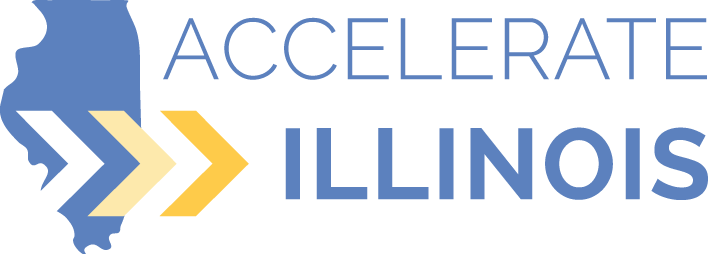Accelerate Illinois: We must invest more in Illinois' vital transit network

Chicago Transit Authority photo
Investing in the maintenance and upkeep of our transit system prevents delays and makes getting around easier.
More than any other Midwest state, Illinois relies on a variety of public transportation options. In northeastern Illinois, hundreds of thousands of people count on convenient transit service to get to work. For travelers throughout the state, Amtrak trains are an increasingly popular option. And in small and mid-sized towns from Peoria to Metropolis (on the Ohio River, near the southern tip of Illinois), local bus systems serve as a lifeline to people who don’t have the option to drive.
In spite of increasing ridership, financial support for transit in Illinois has declined. As the Metropolitan Planning Council showed in 2013, the level of capital investment in Chicago region transit has declined by about 25 percent over the past 20 years.
It’s time to Accelerate Illinois by improving public transit through reliable, dedicated transportation funding. Show your support today by joining the campaign.
In spite of increasing ridership, financial support for transit in Illinois has declined.
Illinois’ difficult budget situation this year puts the state’s considerable support for public transportation in question, which would significantly decrease quality of service at a time when it should be increasing. Northeastern Illinois, which is where most of the state’s transit use is concentrated, would be hardest hit, as it relies on state funding to provide 17 percent of total operations funding for Chicago Transit Authority (CTA) buses and trains, Metra commuter trains and Pace buses. These agencies are already some of the most efficient per rider in the country and their budgets should not be reduced.
For riders already fed up with delays and inconveniences, any reduction in support from the state could result in people switching away from transit to cars, increasing congestion and pollution for everyone. Last year, the CTA’s ‘L’ trains were more crowded than ever, carrying an average of more than 750,000 riders a day. (Just 10 years ago, the ‘L’ was carrying an average of only 480,000 riders a day.) How will the CTA be able to maintain effective service with declining state support?
People who ride Metra are also in trouble: Deferred maintenance, a result of the lack of reliable long-term funding, is taking its toll on reliability and train schedules. The Chicago Tribune profiled the Metra BNSF line, which ran on time just 89.7 percent of the time last year. One train, number 1279 to Aurora, failed to get its commuters home on time six out of 10 days during two months of the year. Track congestion, mechanical problems and preparation for severe weather could all be addressed with additional funding to provide the level of service commuters deserve.
Join Accelerate Illinois today.
Commuter Bill Franzen of Winfield emphasized the effects of poor service: “I personally know more than 10 people who either have taken jobs in the suburbs or now drive downtown because of the uncertain Metra service.” Research studies have shown that access to transit has significant benefits for people who need to get to jobs. People who are low income increase their access to jobs by 25 percent when they live near frequent, reliable transit; unemployed people spend seven percent less time searching for a job when they’re adjacent to transit.
Downstate, any cuts to the state’s more than $220 million in funding to transit services would be devastating. For systems like CityLink in Peoria, a decline in support would come at a time when more people are riding CityLink than ever.
For public transportation riders throughout the state, more funding, not less, is needed to ensure more reliable, more convenient service that improves our quality of life. If you want to continue to see more public transit options, join Accelerate Illinois to support increased funding for transit systems statewide.
